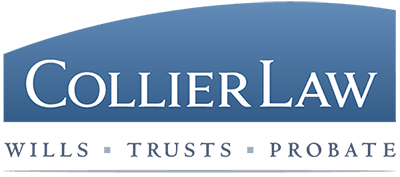Is it Time to Update My Estate Plan?
There are many reasons to review and update your will and other estate planning documents. Below is a partial checklist of events that may prompt you to do so.
Birth or Death. If a beneficiary, trustee, or personal representative named in your estate plan has died, your plan should be updated to remove the name. Otherwise years from now your representative must track down a death certificate – a time-consuming and costly effort. If your spouse has died, your plan will need a new structure. If a birth or adoption occurred in the family, you will want to change your plan to insure that the new child is or is not included.
Marriage or Divorce. A change in marital status requires a change to your estate plan. A recent marriage provides for new estate and gift planning opportunities. You will also want to place protections for either the new spouse or children from a prior marriage. Or if you are recently divorced, you will want your former spouse removed as a beneficiary, trustee, or personal representative and removed from beneficiary designations for life insurance and retirement accounts.
Change in personal representatives, guardians, or trustees. Would you still use the same persons to manage your affairs after death or disability you named in your will or trust? Your children may now be too old for guardians. Or your older parents may no longer be appropriate as fiduciaries. Review your choices for personal representative, guardians or trustees.
Children or grandchildren grow up. Do your children or grandchildren still need planning as minors? Old wills or trusts were created at a time when kids and grandkids were younger.
Financial Change. A substantial increase or decrease in the value of is another reason tp update your plan. If you’ve recently won the lottery, acquired substantial assets, or received an inheritance, then you’ll need to reevaluate if your estate is taxable at both the state and federal levels and, if it is, then explore techniques that will minimize these taxes. You should also fund your winnings or inheritance into your Revocable Living Trust so that these assets won’t need to be probated. Aside from this, you should segregate your winnings or inheritance from your marital assets if you don’t want them snatched up in a divorce. On the other hand, if your estate has declined in value, then you should review your plan to insure that it still makes sense.
Age. Estate Plans should also be reviewed prior to reaching 70 1/2 years of age, if you have an IRA, 401(k), or other qualified plan that requires you to begin to take distributions at age 70 1/2. The beneficiary that you designate will have an irrevocable impact on required distributions for both you and your beneficiaries.
Changes in the law. Finally, new legislation has impacted estate planning and probate. Regulations regarding the Advance Directive, Spousal Elective Share, and probate filing have all undergone changes in the past few years. Federal HIPAA regulations have required new documents in all estate plans.
